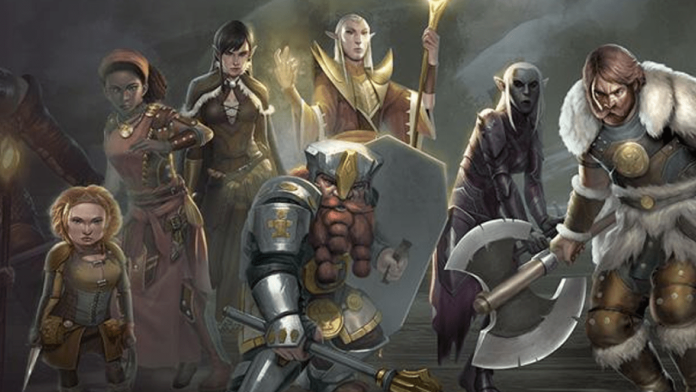Dungeons & Dragons is the most popular tabletop roleplaying game in the world. It’s an open fantasy world filled with interesting characters and incredible stories. It can also be extremely intimidating or frustrating for new players. It’s a game that takes place entirely in the realm of imagination, which can be scary or difficult for newbies and veterans alike.
After years of playing, I’ve come up with several tips to help new players have fun and some reminders for long-standing veterans.
Be Punctual
The running joke of any Dungeons & Dragons game is that the hardest thing to do is to get everyone’s schedule lined up and for everyone to actually show up on time.
D&D is a social game and social games require people. Everyone I know has a pretty busy schedule and it’s not always easy planning a game. It’s even worse when everyone agrees on a date and time, and someone ends up arriving late (or not at all).
It takes a lot to organize a game for a group of people and that means there’s a lot of pressure on the Dungeon Master to provide a fun experience for the gaming group. Punctuality is polite etiquette that’s often overlooked, but very much appreciated by the DM.
Life does happen though, so if you’re running late, make sure to let everyone know in advance.
Know the Rules
Dungeons & Dragons has dozens of books filled with rules. There’s an entire book dedicated to the rules for the Dungeon Master and an entire book that’s strictly for players and characters. As a player, you don’t actually need to know every single rule, but you should be familiar with the basics.
The game is designed with the d20 system which players should be familiar with. As a newbie, it might be worth spending 20 minutes or so going over basic rules with whoever is running the game as the Dungeon Master before you begin.
Each character also has its own set of special abilities, spells (such as Haste 5e), and rules. You don’t have to know the stats or rules of every character or monster, but you should know how each of your character’s spells and abilities works. You wouldn’t expect the fighter character to know how the Eldritch Blast 5e spell works, right?
Relying on other players to tell you how your character works slows the flow of the game and isn’t fair to you or any of the other players. You’ll have a much better time playing a character that you’re interested in and know the rules for.
Write things down
Some gaming sessions can last several hours it could be weeks between sessions. It can be hard to pick up where you left off if you can’t remember what exactly happened in the last session. Having a designated chronicler or note-taker can help players keep track of gaming sessions and what happens in-game.
Another fun way to do that is to keep a journal from the point of view of your character. D&D is a roleplaying game and the more you get into your role and character, the more fun you’ll have. Keeping an in-game journal can be a helpful way to keep track of sessions and it’s a cool souvenir when you complete a campaign.
It Never Hurts to Try
Sort of…
What I mean is, don’t be afraid to think outside of the box. D&D offers an open-world framework to solve problems and complete quests. Unlike a video game that has a set of pre-programmed actions and responses, D&D is literally powered by your imagination.
If you have one of those crazy ideas that “Just might work”, talk with your group and give it a try. It may be silly and might end up blowing in your face, but the odds are also good that you’ll pull it off.
Some of the most fun in-game moments are from players who have a crazy idea and the imagination to make it work. Just because the Dungeon Master planned for a scenario, or a trap doesn’t mean that there’s only one solution.
If you can justify it within the D&D world and have the dice rolls to make it work, you could potentially create one of the more memorable moments for your gaming group.
Teamwork is Key
“Never split the party”
You won’t be able to complete every objective in D&D without teamwork. D&D is designed to be a social roleplaying game and it can be easy to forget that. Working together is much more fun than trying to be the Alpha gamer.
In a video game, RPG players can be selfish and do whatever they feel like. There are no consequences for grabbing all the treasure or ignoring a side quest because you think it’s boring.
In D&D you can’t do that. The questline you’re ignoring was made up by one of your friends, and they probably spent a few hours making it. The other characters in-game are being controlled by your actual friends.
Keeping in mind that you’re not the only player seems like a simple concept, but in the heat of the moment when players get excited, it can be easy to forget that they’re not the only character. Working together will make the game much more enjoyable for everyone and will help you keep the peace in your gaming group.



















